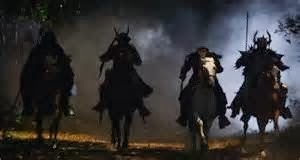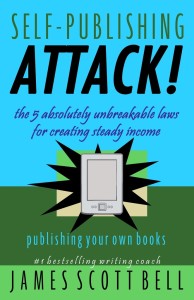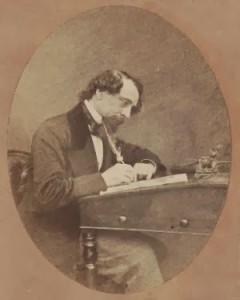Okay, it’s freaking cold today! Does the weather or winter blahs change where you write? Describe.
Monthly Archives: December 2013
My Addiction to Fox’s Sleepy Hollow–as a Writer
I’ve been watching Sleepy Hollow and consider myself a Sleepyhead, one of many fans who follow the show. We tweet during episodes, quoting lines we love, and mostly talk about Tom Mison, the delectable British male lead who will undoubtedly inspire books in me from here on. But what I’ve found most interesting in the show, beyond the eye candy of Mison, is the daring mix of genres and biblical and literary references. It’s got the flavor of National Treasure (by turning history on its ear with an intriguing undercurrent of conspiracy theories or good vs evil battles) woven into the luxurious velvety fabric of fantasy, mystery, humor, romance, historical, paranormal, and horror.
On top of everything else—the cherry on the top–is damned good writing. We care about the characters and what happens to them. They have personal stories we can’t get enough of, along with the good vs evil battle against demons. There’s a great mix of suspense thriller pacing, blended with the mounting risks the characters take on with each new episode, and compelling backstories to pepper the emotional landscape. The writers leave us wanting more with each new show, while continuing an overall story arc on each character. Even secondary characters become important because of how they add to the plot. I get swept away with being a viewer, but often go back to really listen to each line because these writers do NOTHING without a purpose. It’s fun to see all the threads pull together as the season continues. You have to pay attention if you want to figure stuff out ahead of time, which I really love as a writer.
Other fun things to watch for is the historical research the show’s writers must do into the history of the period. Crane’s dialogue lines are incredible studies into the English language of the time period as compared to how we speak today. Abbie represents our present day while Crane is our past. They’ve even used Middle English in the retelling of the mysterious legend of Roanoke. With Crane remembering the past freshest in his mind, he is a reminder how precious our past is and how much can be forgotten over time.
Crane is also portrayed as a renaissance man with an enlightened perspective against slavery, which works well with Abbie being a black female law enforcement officer whose ancestors crossed paths with Crane’s family. Again, good writing. Characters and their backstories are well thought out and serve a function for all that springs from their conflict or purpose. This show also has many references to literature and books. In the last episode, Crane is quoted as saying, “Without books we have no past and no future.” I hope I remembered that correctly. It stuck with me. So many quotables from the show.

The “man out of time” bits are hilarious and far too few, but that makes every one precious. Crane is outspoken and has trouble admitting when he doesn’t understand our present time, making each misstep of his funny to watch. His first shower, his take on modern technology and conveniences, his disbelief we pay for water or pay 10% levy on baked goods (his introduction to donut holes), his time spent on the “ninernet” and finding a porn chat room, and his first baseball game are hilarious. Crane’s take on us is entertaining, but it’s what he teaches Abbie about the past and the way he still lives (standing up to evil or injustice no matter the personal cost), endears him to us. This is another test of good writers – to incorporate such special moments into a suspenseful story line at the right time and place, or surprising the viewer when it comes at a very unexpected moment (like the picture above where he sees his first shower sponge and doesn’t ask why Abbie bought it for him). The writers and Mison make me want the whole show to be about Crane assimilating, but of course there must be more for us to get to know characters who are quickly becoming as familiar as family to the growing legion of Sleepyheads who crave the Sleepy Hollow world.
 I know the day is coming that Crane will be forced from his period clothing, but I have to say Tom Mison is dream worthy in his revolutionary breeches, boots, and gabardine jacket. He’s wearing a wig for the long sexy hair, but Mison looks amazing in short hair too. Google the many faces of Tom Mison and you’ll see. Here’s fun video on Mison and Beharie. And here’s another of just Mison and his short hair. The fandom on DeviantArt and twitter and countless other chat rooms and forums have quickly evolved. Fortunately people of all ages have embraced this show.
I know the day is coming that Crane will be forced from his period clothing, but I have to say Tom Mison is dream worthy in his revolutionary breeches, boots, and gabardine jacket. He’s wearing a wig for the long sexy hair, but Mison looks amazing in short hair too. Google the many faces of Tom Mison and you’ll see. Here’s fun video on Mison and Beharie. And here’s another of just Mison and his short hair. The fandom on DeviantArt and twitter and countless other chat rooms and forums have quickly evolved. Fortunately people of all ages have embraced this show.
Another writer thing – the plot and character story arcs are really good. The ground swell to Ichabod’s and Abbie’s story is building in such a tantalizing way with cliff hanger and reveals that escalates the momentum. Ichabod and Abbie are the two witnesses in Revelations who are fighting the four horsemen of the Apocalypse, malevolent spirits, a dark coven of witches, and a powerful demon behind it all. The chemistry between Abbie and Crane is growing stronger as they work together and put their lives on the line for the sake of humanity, despite the cost to their lives and loves. I want to bottle similar elements into a book. There are so many things I am learning about good writing. Thanks to Fox, the Sleepy Hollow Writers and Phillip Iscove for bringing a quality show like this to TV.
For other Sleepy Heads, have you seen the online map on the Fox site? HERE is the link. Bone up for the upcoming 2-hour finale (two back to back eps that will be an event held on Jan 20th). Yes, this means we have to wait, but this show is worth waiting for. I can’t even imagine having Ichabod for two hours. (Well, actually I can, but that’s a whole ‘nother post…with a different rating than PG.)
Congratulations to Fox and the cast of Sleepy Hollow for getting picked up for a second season. Fox has a major hit on its hands!!!
For the purposes of discussion:
1.) Are you a Sleepyhead? Will you be watching the 2-hour finale on Jan 20th?
2.) What are your favorite elements of the show – as a writer – as a viewer?
3.) What clothes would you like to see Ichabod wear? I’ve heard rumor of a hoodie, but I truly believe Crane’s clothes are his security blanket. Will he part with them? If not, what will his compromise be?
Choices and Crises Show True Character
Today I welcome our guest blogger, Becca Puglisi, to TKZ. Becca is an instructor and author specializing in character-building strategies for writers. Enjoy her tips and advice.
——————–
I’ve recently become addicted to Showtime’s Sons of Anarchy. Thanks to Netflix, I was able to watch the first four seasons in an  obscenely short period of time. One of the things that makes the show so compelling is the sheer amount of pressure that the characters are under. It honestly never lets up, and, against all odds, it keeps getting worse.
obscenely short period of time. One of the things that makes the show so compelling is the sheer amount of pressure that the characters are under. It honestly never lets up, and, against all odds, it keeps getting worse.
One of the most interesting characters is the protagonist’s mother, Gemma. She’s incredibly flawed, but she has great strength, too. I find myself rooting for her despite her seeming determination to train wreck her own life and everyone else’s in the vicinity. This makes me wonder: how do the writers present such a complex character so believably? I mean, how can a woman be controlling and submissive, manipulative and nurturing, loyal and selfish—and all of that come through to the audience without it being contradictory or off-putting? In thinking about how to write complicated characters well, I’ve realized that crises and choices are hugely important.
Choices usually come with an element of time. The character is able to slow down, think things through. This is invaluable in a story setting, where the reader is privy to the character’s thoughts, because thoughts reveal truth. Characters, like real people, are usually not 100% honest with others when it comes to personality. They hide flaws, disguise them as strengths, and mask unwanted traits with more desirable ones in an effort to mislead. But a character’s thoughts are unvarnished. This is where the character can be her true self. Through the internal dialogue that accompanies a difficult decision, readers will see what the character truly values, what she wants, what she fears. This is one reason that choices provide an excellent opportunity to show true character.
Another benefit is that readers are able to see and evaluate how the character eventually comes to his decision. Does he base it on morality or ethics? If he’s uncertain, who is able to sway him, and why? Does fear drive him, or insecurity, or some other weakness? Does he ultimately do what’s right, or what’s easy, or what other people expect him to do? If you want to reveal your hero’s true personality, give him a difficult choice and some time to mull it over, and readers will be able to see who he is at his core.
Crises are equally beneficial, but for a different reason. When a character is thrust into a critical event that requires immediate attention, there’s no time to think. In a crisis situation, he’s forced to respond in a knee-jerk fashion, without dissembling. He just reacts. In doing so, he reveals his true self. I love how Stephen King does this with his villain in The Dead Zone. Presidential candidate Stillson is a cruel, emotionally unbalanced individual, but, like many politicians, he has the public snowed. Then, during an assassination attempt, he snatches a young child and uses him as a human shield. A journalist catches Stillson’s instinctive response on camera, revealing him as the self-serving coward that he always has been.
The beautiful thing about crises is that while they work quite well at the time of the climax, they can be utilized as effectively at any point in the story.
So if you’ve got a multi-faceted character whose real personality you’d like to reveal, consider giving him a tough decision or throwing him into a crisis situation. Then sit back and watch his true colors bleed.
————-
Thank you, Joe, for inviting me to post at The Kill Zone today. As a special thanks for the warm welcome, I’d like to give away a PDF copy of my book, The Positive Trait Thesaurus: A Writer’s Guide to Character Attributes. Just leave a comment to enter for a chance to win. The giveaway runs through December 13th, after which time I’ll pick a winner. Best of luck!
Becca Puglisi is the co-creator of The Bookshelf Muse, an award winning online resource for writers. She has also authored a number of nonfiction resource books for writers, including The Emotion Thesaurus: A Writer’s  Guide to Character Emotion; The Positive Trait Thesaurus: A Writer’s Guide to Character Attributes; and The Negative Trait Thesaurus: A Writer’s Guide to Character Flaws. A member of SCBWI, she leads workshops at regional conferences, teaches webinars through WANA International, and can be found online at her Writers Helping Writers website.
Guide to Character Emotion; The Positive Trait Thesaurus: A Writer’s Guide to Character Attributes; and The Negative Trait Thesaurus: A Writer’s Guide to Character Flaws. A member of SCBWI, she leads workshops at regional conferences, teaches webinars through WANA International, and can be found online at her Writers Helping Writers website.
First Page Critique: GAMES OF CHANCE
We have a first-page submission for critique today, titled GAMES OF CHANCE. My comments follow.
***
As Callie crested the hill, the finish line appeared, lined with colorful flags – and then receded, as another girl thundered past.
Callie chased her on a gentle downhill slope, three hundred meters of fairway to the finish line of the State Championship. Through eyes hazy with exhaustion and the remnants of a cold, she could see Anna and Hanna, her twin teammates, sprint past the finish marker in a dead tie.
Two hundred meters to go and Callie could hear the gasping breath of another runner closing on her. Five strides later, the girl was beside her. Callie pumped her arms harder, willing her legs to move faster. Legs that could carry her for miles were failing now with the finish in sight.
Noise flooded both sides of the course and, penetrating over it, someone shouting her name. The cheers of the fans and coaches slid past her as she fought for position.
She saw the red singlet and slashing white diagonal as the last of the Fairchild Academy runners eased by her. Swearing, Callie leaned forward to gain momentum, rising up into a full sprint, her calves already starting to cramp, alternating with each foot strike, each spasm an opportunity to let the girl go, to quit.
Seventy meters and Callie still matched strides with the Fairchild girl.
At fifty meters, another girl caught both of them. She was a tiny runner from a small school up north, and her breath came in sobs.
The three of them closed on the flags at the top of the finishing chute. Callie felt the agony of each breath as it exploded from her lungs, too little air for starving muscles. The blood pounding in her head drowned out the runners beside her, and Callie’s vision squeezed down to a small circle focused on the white line that marked the end. She drew on the struggling efforts of the runners next to her, seeking just a small advantage.
The sobbing girl finished one step ahead, the last sob a moan as she collapsed. Instinctively, Callie dodged the fallen runner as she lunged past the line, a half-step ahead of the Fairchild runner.
Relief and exhaustion mingled with joy but a small doubt blossomed.
Was it enough?
***
My comments:
Update:
Clearly, I erred in attaching a soccer image to this story about a race! I formed a clear picture of a drive down a soccer field in the first paragraph and never let go of that image, despite counter-cues in the rest of the page. That shows how readers can go offtrack–which is a subject for another blog!
***
I appreciate the way this page describes Callie’s efforts during her thundering drive toward the finish. The writing regarding the action, concentration, and her sense of being pursued by others was convincing.
I do think that the first lines lost a bit of impact due to their construction. “As”used twice in the opening paragraph. It’s important to vary your sentence constructions, especially in openers. Also–and this is just my personal opinion, others may disagree–starting a story with a sentence that begins with “as” is a weak way to open a scene. As readers, we don’t yet have any context for relating the “as” to anything. The writer should the character’s main action, rather than introducing “as” right off the bat.
While I enjoyed the way the running action was described, I do think we need to learn a bit more about Callie in this first page. As we’ve discussed so many times here on the blog, the first page of a story has to pull the reader into the character’s world. As currently written, we only get the idea that Callie is trying to score a soccer goal. (Update: Oops!) For me, that situation is not quite compelling enough for a first page. We need a hint about Callie’s character and motivation, as well as the story to come.
One nit: There were too many undifferentiated characters, I thought. To enhance the suspense, the writer might consider focusing Callie’s running battle on one particular opponent in particular–especially if that rival will figure later in the story. (From my Soccer Mom days, I predict that the opponent will be the Dreaded Goalie.)
All that being said, I think the writer displays a promising strength for conveying action. That’s a a real plus. Keep going, Writer! And thank you for submitting this page for discussion today.
TKZ’ers, what are your thoughts about GAMES OF CHANCE?
Survival Guide
The holidays are almost upon us and it’s the time of year where we all tend to take stock of the year that’s passed and start thinking about resolutions for the year to come. For me this typical means riding a roller coaster of emotions regarding my own writing – I berate myself for all things I failed to achieve, didn’t seem to get around to doing, resolutions I failed to fulfil…then I come back up and feel good about all that I did manage to do, the accomplishments and for the progress made. Then I go back around for another ride:) Ah, the holidays…
It’s also the time of year when, at various holiday events, I meet people who cross-question me about what it means to be a ‘writer’. These tend to be divided into two camps – the first who think it must be nice to sit around all day daydreaming and having fun and the second who can’t imagine how anyone could possibly have the self-discipline, patience or confidence to be a writer at all. I’m never quite sure how to respond to either camp because, as Jim said in yesterday’s post – the publishing industry seems like such a crap shoot sometimes. It involves personal tastes, fads, uncertainties as well luck and often the decisions made don’t make much sense at all. We’ve all wondered why some books are published and others rejected, why some books are successful and others aren’t…and most of the time, when people ask me why, I can only shrug my shoulders and say “that’s the industry for you!”
So today, I thought I’d outline some tips for coping with those myriad of questions you get around the holidays about what it means to be a ‘writer’ – a survival guide if you will – for a time of year when, let’s be honest, we often question why the hell we do what we do!
Firstly, don’t be honest (well not entirely)….people don’t want to really know about the angst, self-doubt and hair-pulling we go through as writers. They want it to sound easy – something they could do, if they just had the time to do it. So I tend to smile when I’m asked ‘what’s it like to be a writer’ and say it’s great, and move on – because unless you’re actually in the trenches as a writer, you have no idea what it really means.
Second, ignore all the crap about ‘success’ as it’s impossible to talk about when you’re going to be on the New York Times bestseller list or when some one’s going to make a movie of your book…likewise don’t talk about the ‘numbers’ because I think authors can go crazy enough thinking about sales numbers without getting into a competition about it. Which leads to…
Third, don’t go into promotion overload. Some amount of self-promotion is fine, but just because its the holidays doesn’t mean you have to feel the need to go into a promotion frenzy.
Fourth, start setting realistic goals for the next year. Patience, persistence and writing the best damn book you can is really what you need to aim for, but I find it helpful to set measurable goals for the following year (that helps too, when you start riding that roller coaster of emotions). My first blog post for the new year will probably identify some of these goals but in the meantime my plan is to hunker down, meet my writing targets for the rest of the year and try to stay sane…
Anyone got any other tips for my holiday survival guide for writers??
How Much Money Is In the Self-Publishing Game?
I have a good friend who is a big-time business guy. One of his pet sayings is, “Data drives decisions.” In a bottom-line world, you can’t depend on sentiment, heart, hope, dreams or desire. Those all may factor into starting a business. But if the business is not making a profit, and you have hard data showing you why, you either change course or go under.
principles, and came up with 5 absolutely unbreakable laws. I stand by them. They are the foundation for creating your own “set of practices” for self-publishing success.
For example, the primary law is, “Write the Best Book You Can.” The set of practices you design to make it so might involve craft study, writing, feedback, writing, finishing, revision, craft study, coffee, more writing. Plans are unique, but the writer who pursues a strategic and thought-out approach to getting better is more likely to win in the end.
Putting It Off or Getting It Done
Reader Friday: Taking Stock at Year’s End
When Bad Things Happen to Good Books
By Elaine Viets
So there I was reading my favorite blockbuster novelist, a writer with a shelf full of awards, kudos from critiques, a movie and more, when I was stopped by a stupid mistake. The angst-ridden hero tossed his clothes down the laundry shoot.
Well, chute. What happened to this normally careful and precise author? Where were his editor and copyeditor?
No, I’m not giving you this writer’s name. These mistakes happen to us all. Keep reading and I’ll tell you how I embarrassed myself in front of three hundred thousand readers.
Let’s just say that homonyms happen.
Here are a few common mistakes that make you look like an amateur. And no gloating, please. The next brain freeze could be yours.
– It’s bloody embarrassing when mystery writers have police and forensic experts talk about blood splatter. It’s spatter. Get the L out of there.
– Watch those bears. Grizzly murders are cringeworthy, unless the person was killed by a bear. Grizzly is another treacherous homonym.
– Triple threat. “Peaked,” “piqued” and “peeked” give writers three ways to go wrong. How often have you encountered versions of “this peaks my curiosity”? I didn’t want to see it, but I’d already “piqued” at the page and knew I wasn’t getting a “peek” literary experience.

– Twisted. Beer drinkers know that Heineken does not have a twist-off cap, but many writers don’t. Your character needs a church key for those green bottles.
— Jack’s possessive. Jack Daniel’s always has an apostrophe. I had a sobering discussion with a copyeditor who wanted to remove the apostrophe, but that’s when hanging around bars paid off. I knew Mr. Daniel was possessive about his Tennessee whiskey.
– How to drive readers crazy: Get car details wrong. In 1968, hippies did not open the hood of their VW Beetles and check the engine. Beetles back then had rear-mounted, air-cooled engines. Check car details on the Internet.
– All wet. No, you do not “wet” your appetite. You sharpen it. Put that H to work.
— Lift that bale. No, you don’t tow the line. It’s not a rope. Webster says when you “toe the line” you “conform rigorously to a rule or standard.”
– Watch those foreign words and phrases. When I was a newspaper reporter, I wrote about a waiter who wore “liederhosen” at a German restaurant. Amazing, a reader told me. A man with singing leather pants. I should have had the waiter wearing lederhosen – leather britches.
That extra “i” made a fool out of me.
Author Lifeboat Teams
An author lifeboat team is a band of authors who join together to cross-promote their work. I became aware of the concept when I got invited to join one. This particular group was made up of paranormal romance authors, and their rules included sharing each other’s posts on Facebook and being responsible for one post a week.

I thought that obligation and the specific genre focus might be too restrictive for me, especially since I write in two genres. So while flattered to be asked, I politely declined. The idea brewed in my head, though, so when Terry Odell invited me to join her fledging group, I seriously considered and eventually said yes.
Why did I like this team? While we were encouraged to support each other with retweets and shares, we weren’t committed to any particular schedule. And the group consisted of multi-published authors in various genres. This interesting mix could attract new readers, and that would benefit our primary goal of increasing our visibility and readership.
It’s been one year since I joined. What have we accomplished in that time? We’ve established our website, Booklover’s Bench.
Besides each of us having an author page, we have added Behind the Scenes and Excerpt features. We run a monthly contest via Rafflecopter with a $25 Amazon or BN gift card as the main prize and e-books from each of us for runners-up winners.
In another effort to cross-promote, we’ve also started offering each other’s books as prizes for personal newsletter contests and sharing the resultant mailing list.
On Twitter, we’ve each created a List for our team members. It’s easy to access the list and retweet everyone’s posts that way.
In terms of results, my newsletter in Sept. 2012 went out to 4542 recipients. In Oct. 2013, I sent it to 5339 folks. That’s an increase of nearly 800 names. Some of these might have come from my own contests, but I’d say the majority of new entries are thanks to BB.
As one of the extra options on our Rafflecopter contests, we’ve put “Like my Facebook Page” as an added choice. My FB Likes have increased quite a bit as a result. So this is another benefit.
We’re also a sounding board for marketing ideas. I learned about doing a Facebook launch party from one of my team mates. If we have an aspect of the biz we need input on or just want someone to listen, we have each other. In the future, maybe we’ll expand and hire a virtual assistant. Our only requirement is to do what we can to support each other, to tweet about the contests, take over the $25 gift card contest prize once every couple of months, and support our efforts any other way we can. We split the cost of the website hosting and manage it ourselves.
Other ideas for future consideration are a subscribers-only tab on our website for free downloads of bonus materials or short e-reads, a blog hop, a street team, a Fan of the Month selection.
How do we communicate? We’ve held two Skype conference calls so far with a third one coming up to discuss our ideas and goals for next year. Otherwise, we have a private Facebook group page and a yahoo group listserve. Or we can send individual emails.
It’s hard to work alone, especially since most marketing efforts have moved online. Consider gathering together your own author lifeboat team. Again, it’s a group of authors who band together to support each other on social media with the goal of expanding their readership. How your team operates and what you do for each other is your choice. See what other groups do and borrow their ideas that appeal to you. We all learn from each other, and we must support each other, too. Just like we do on this group blog.
As Thanksgiving passes us by, thanks to each one of you for following us and for joining our discussions. We share a wealth of information about writing craft and marketing that contributes to our online community. We’re grateful for all our cyberspace friends.

















